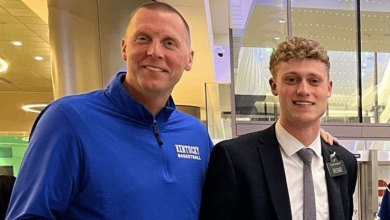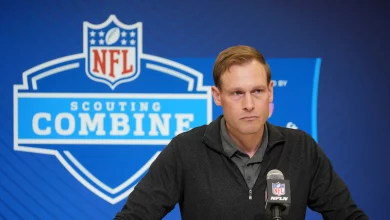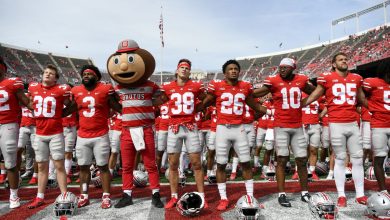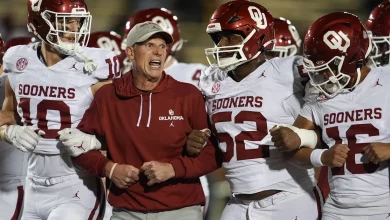Texas NCAA sports programs have self-reported betting infractions, highlighting growing concerns about compliance as oversight increases, prompting investigations into potential violations within the athletic department.
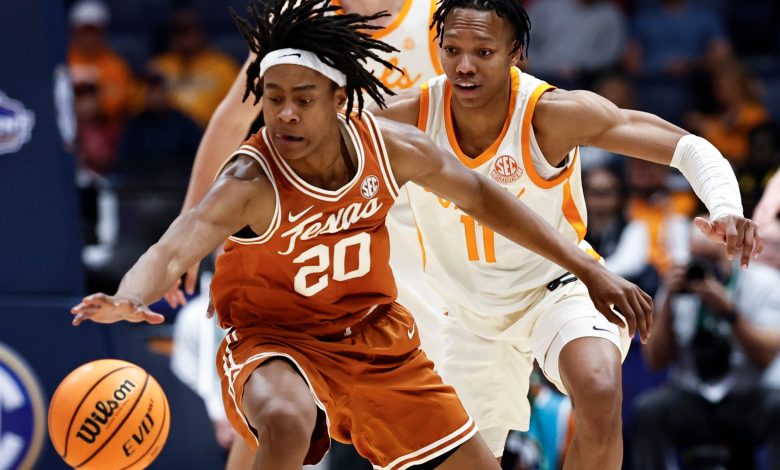
In recent years, the realm of college athletics has seen a sharp increase in both oversight and regulation concerning sports betting. With the advent of legalized sports betting across various states, the NCAA and schools within power conferences like the Big 12 have been faced with new challenges in maintaining the integrity of college sports. Among these challenges is ensuring that athletes, coaches, and other individuals involved in college sports remain free from the influences of illegal gambling or conflicts of interest. Recently, the University of Texas, one of the NCAA’s most prominent athletic programs, self-reported betting-related infractions, raising concerns about compliance and casting a spotlight on the growing issue of sports betting within collegiate athletics.
The Evolution of Sports Betting and Increased Oversight
Sports betting has become a central issue in the world of American sports in the last decade, particularly after the Supreme Court’s 2018 decision to overturn the federal ban on sports betting. This decision opened the door for individual states to legalize sports betting, and in just a few years, the number of states allowing legal sports gambling skyrocketed. By 2023, over 30 states had legalized some form of sports betting, allowing fans to legally place wagers on games, athletes, and outcomes.
For NCAA sports, this shift has created a complicated landscape. College athletes, coaches, and administrators have always been under strict scrutiny when it comes to gambling, and many NCAA rules are built to protect the integrity of college sports. NCAA bylaws prohibit student-athletes from engaging in any form of gambling on college sports events, a rule designed to prevent match-fixing and the compromise of fair play. However, with the legalization of sports betting, many of these regulations have become more difficult to enforce, as student-athletes now live in states where legal betting on sports is a reality.
As part of the NCAA’s response, schools and athletic programs have significantly increased oversight of their athletes and staff to prevent infractions related to gambling. This includes educating athletes on the consequences of violating gambling rules, implementing stricter monitoring of their activities, and, in some cases, self-reporting infractions to demonstrate transparency and a commitment to maintaining the integrity of college sports.
Texas NCAA Sports Programs Self-Report Betting Infractions
In 2025, the University of Texas found itself at the center of this growing issue when its athletic department was required to self-report gambling-related infractions to the NCAA. While the specific details of the infractions have not been fully disclosed, the self-report marks an important step for the institution in handling an increasingly sensitive topic.
The self-report likely came as a result of internal monitoring and compliance systems at Texas, which, like many top-tier athletic programs, have extensive departments dedicated to ensuring compliance with NCAA rules. These departments track the behaviors and activities of both athletes and staff members, often working with NCAA compliance officers to investigate any potential violations. It’s also common for athletic departments to implement educational programs aimed at making students aware of the specific gambling rules and the penalties for infractions.
The University of Texas, known for its strong athletic programs across multiple sports, is no stranger to the NCAA’s regulatory framework. From its prestigious football team to its competitive basketball and baseball programs, Texas regularly operates under the watchful eye of both the NCAA and its own compliance staff. The reporting of gambling infractions, however, highlights how even institutions with extensive compliance efforts are facing new challenges in the modern sports betting landscape.
In its self-report, Texas acknowledged that one or more of its athletes were found to have violated NCAA’s sports betting rules. The athletic department quickly took action to ensure that the infractions were addressed appropriately and that the athletes involved faced the necessary consequences as outlined by NCAA guidelines. As the self-report process continued, the school also worked closely with the NCAA to ensure that the matter was fully investigated.
What Led to the Self-Report and What It Means for Texas Athletics
Self-reporting infractions is a critical part of maintaining the credibility of any athletic program, and it is a necessary step when an institution uncovers potential violations. For Texas, self-reporting the betting violations signals a willingness to hold athletes accountable and maintain the integrity of its sports programs. It also allows the school to demonstrate its commitment to ensuring that no future issues arise within its programs.
Texas, like many other universities, has been proactive in addressing the challenges posed by legalized sports betting. The fact that Texas’ athletic department has reported gambling violations speaks to a robust internal monitoring system. These types of systems are critical for large programs that compete at the highest levels and are under constant scrutiny.
By coming forward and reporting the violations, Texas also mitigates the risk of harsher penalties down the road. The NCAA has made it clear that it takes gambling violations very seriously, with harsh penalties for those found guilty of betting on their own games or the games of their peers. However, schools that self-report and demonstrate a commitment to compliance are often viewed more favorably during investigations. The NCAA’s process for self-reporting and penalties can involve reductions in scholarships, suspensions, fines, or other measures. By proactively addressing the issue, Texas is taking steps to limit potential sanctions and prevent any further damage to its reputation.
It is important to note that the integrity of college sports, especially in programs as high-profile as Texas, is paramount. The NCAA’s guidelines prohibit athletes from engaging in any form of gambling on college events. This rule extends beyond the obvious concerns about match-fixing or point-shaving; it also serves as a deterrent to the idea that college athletes, who are still in the process of developing their careers, may be influenced by financial interests outside of their academic and athletic responsibilities.
The Growing Threat of Sports Betting in College Athletics
Texas is not the only school facing challenges related to sports betting. As more states legalize gambling, universities across the country have ramped up efforts to monitor and regulate their athletes’ activities. The NCAA itself has been working with legal experts, regulators, and schools to create more effective policies and guidelines for handling gambling infractions.
For many years, sports betting was seen as a taboo subject in college athletics. But as states continue to legalize and expand sports betting, the conversation has shifted toward how schools can manage the influx of gambling activity surrounding their teams. Athletes, who in many cases have social media profiles and are frequently under public scrutiny, are often targets for gambling-related temptations. The NCAA’s strict rules against gambling on games are meant to protect the integrity of college sports, but in the current landscape, athletes face a delicate balancing act between their social lives, the attention they garner from fans, and the potential dangers of getting involved in gambling.
Furthermore, the reach of sports betting has expanded beyond just traditional wagers on game outcomes. With the rise of in-game and micro-betting opportunities, bettors can wager on individual player performances, such as points scored, assists, rebounds, and more. This has raised new concerns, especially in high-profile college basketball and football programs, where student-athletes could be enticed into influencing their performances for financial gain.
The NCAA’s effort to combat these risks includes educating athletes, implementing new reporting mechanisms, and ensuring compliance with state and federal regulations. For Texas, this self-reporting represents a commitment to maintaining clean programs and adhering to these rules, despite the broader challenges posed by legalized betting.
The Impact on Texas and NCAA Sports Moving Forward
As sports betting continues to grow across the United States, college athletic programs will likely face ongoing challenges in managing and monitoring their athletes’ involvement with gambling. Texas’ decision to self-report is a crucial step in addressing these issues, but it also highlights the need for continued vigilance and transparency within NCAA programs.
As part of its ongoing efforts to prevent further infractions, Texas will likely continue to enhance its internal compliance protocols and develop new ways of monitoring its athletes’ actions, both on and off the field. The self-report may also encourage other schools to follow suit, creating a more open dialogue about the potential risks of sports betting in college athletics.
For the NCAA, the growing influence of sports betting means that continued collaboration with schools and lawmakers will be necessary to create a balanced approach to compliance, education, and enforcement. The landscape of college athletics is changing rapidly, and ensuring the integrity of the game will require ongoing adaptation to new trends and regulations.



